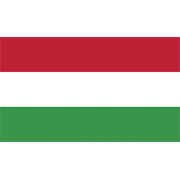Fiscal subject related
Based on the current predictions, the e-receipt will be launched in July 2024, i.e., within a year, and from then on, four years are allocated for the complete transition to occur.
As a part of the mentioned presentation, it was explained how the e-receipt would be provided to the customer from his point of view. In that sense, according to the current plans, the e-receipt will work as follows:
- The customer downloads an application on his mobile phone.
- When the customer reaches the checkout, he will need to show the QR code available in the application to the cashier.
- The cash register reads the QR code and creates the receipt, but it remains in electronic form (digital), meaning the cash register machine does not print it automatically.
- The cash register uploads the receipt to the so-called Receipt Store at NAV.
- The customer will be able to download the receipt from this Receipt Store if he needs it. Also, he may request to have such a receipt printed on the spot.
According to the NAV presenters, the customer will not need any separate registration to use the new system and receive a receipt; he will be able to use a smartphone with the application downloaded to it.
Other news from Hungary
New event was created: Join our free webinar: Approaching Hungary’s New E-Cash Register Era
 Hungary
Author: Tara Nedeljković and Ištvan Božoki
Hungary
Author: Tara Nedeljković and Ištvan Božoki
Step into this in-depth webinar designed for businesses and retailers operating in, or planning to enter the Hungarian market. You’ll discover what the new generation of e-Cash registers is expected to introduce, along with the practical implications these changes may have on daily operations, technology planning, and customer interaction as well. 📅 18 December ⏰ 3 PM (CET) What we&rsquo... Read more



Choosing the Right Printer for the NAV e-Cash Register App in Hungary
 Hungary
Author: Tara Nedeljković
Hungary
Author: Tara Nedeljković
The NAV e-Cash Register app in Hungary supports a wide range of portable printers, but users should choose a device that meets the system’s technical expectations for clean and reliable receipt printing. Read more
Subscribe to get access to the latest news, documents, webinars and educations.
Already subscriber? Login


NAV Issues Detailed Guidance on Licensing Procedures for E-Cash Registers and Customer Apps
 Hungary
Author: Tara Nedeljković
Hungary
Author: Tara Nedeljković
NAV has published a detailed Notice explaining how distributors must apply for and obtain permits to market e-cash registers and customer applications under Decree 8/2025. Let’s explore this further. Read more
Subscribe to get access to the latest news, documents, webinars and educations.
Already subscriber? Login


Hungarian HAV Published E-Cash Register Testing Details
 Hungary
Author: Tara Nedeljković
Hungary
Author: Tara Nedeljković
Hungary’s new e-cash register framework, based on the 8/2025 (III.31.) Ministry of Finance Regulation, introduces strict technical certification rules and NAV-supervised type testing to ensure secure digital receipt issuance and data transmission. Read more
Subscribe to get access to the latest news, documents, webinars and educations.
Already subscriber? Login


New Requirements for Publishing Visual and Audio Signals of E-Cash Registers in Hungary
 Hungary
Author: Tara Nedeljković
Hungary
Author: Tara Nedeljković
The National Tax and Customs Administration mandates specific visual (.gif) and audio (.wav) signals for e-cash registers for consistent customer feedback. Read more
Subscribe to get access to the latest news, documents, webinars and educations.
Already subscriber? Login


How VAT Rules Impact Free Product Campaigns in Hungary
 Hungary
Author: Tara Nedeljković
Hungary
Author: Tara Nedeljković
In Hungary, free product transfers can create significant VAT implications for retailers. While small-value gifts under HUF 5,000 allow VAT deductions, strict record-keeping is essential. Read more
Subscribe to get access to the latest news, documents, webinars and educations.
Already subscriber? Login


E-Receipts, Receipt Store, and Customer App in Hungary’s New E-Cash Register System
 Hungary
Author: Tara Nedeljković
Hungary
Author: Tara Nedeljković
Hungary's new e-cash register system introduces the e-receipt, an electronic receipt solely issued by e-cash registers, contrasting with the broader term electronic receipt. Read more
Subscribe to get access to the latest news, documents, webinars and educations.
Already subscriber? Login

